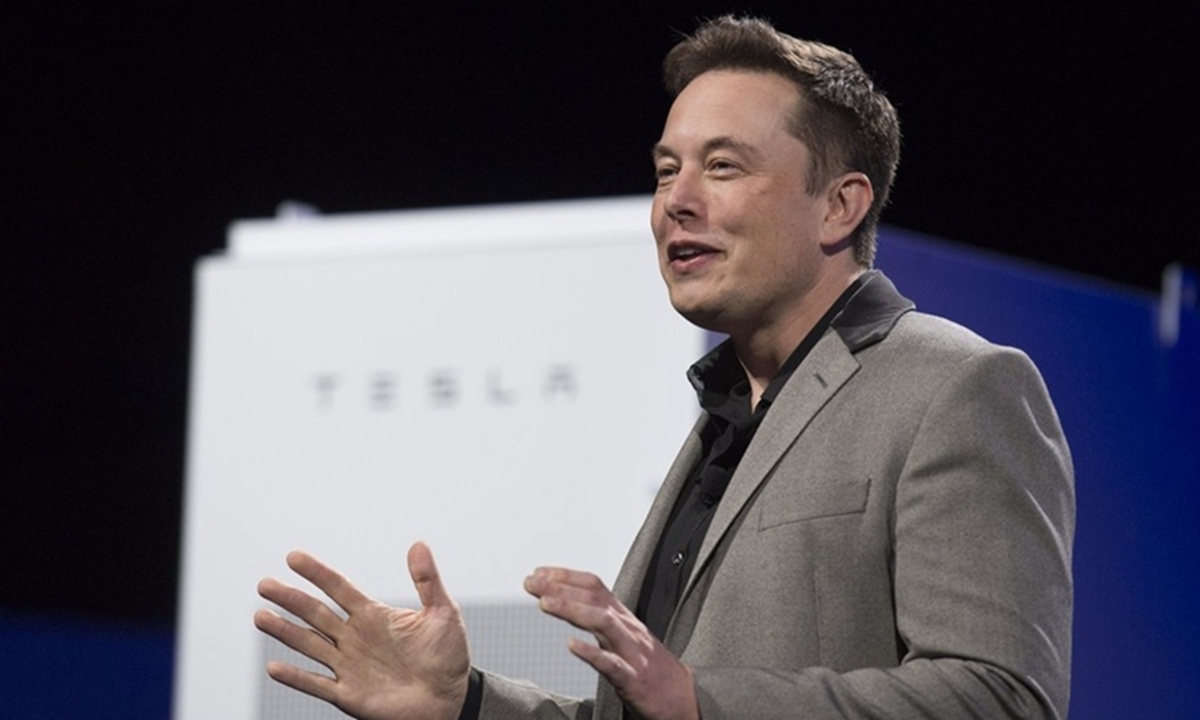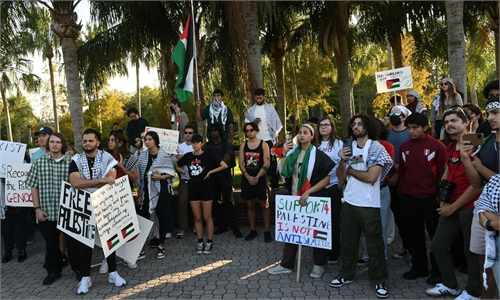‘Social media regulation VS freedom of speech’ a challenging task for West as well

Elon Musk File Photo: Xinhua
In its first probe under the Digital Services Act, the EU is investigating social media company X, formerly known as Twitter, over areas "linked to risk management, content moderation, dark patterns, advertising transparency and data access for researchers." According to media reports, this investigation partly relates to the new round of conflict in Gaza.The war on the battlefield has now crossed real national borders and entered the realm of social media in the West. With the escalation of tensions in the Palestine-Israel conflict and the subsequent flow of information on social media, the supervision of social media has become the main agenda for authorities in the US and Europe. In October, tech giants Meta and TikTok were sent formal requests for information by the EU, as EU regulators had been concerned about illegal content and disinformation circulating on social media platforms following attacks in the Middle East. Around the same time, US Senator Michael Bennet sought information on how Meta, X, TikTok and Google were trying to stop the spread of false and misleading content.
As the EU has launched the investigation into X, in a post on X, Elon Musk asked EU industry chief Thierry Breton if similar action was being taken against other social media platforms. "Because if you have those issues with this platform, and none are perfect, the others are much worse," he added.
Shen Yi, director of the Research Institution for Global Cyberspace Governance at Fudan University, told the Global Times that the EU's investigation against X, on one hand, reflects the contradiction between the EU's official stance on the Palestine-Israel conflict and the views of social media users on this issue. On the other hand, it shows that "freedom of speech" is a concept largely controlled by Western elites, which goes against the values of equal rights and democracy touted by Westerners.
The West is currently grappling with a conflict between "social media regulation" and "freedom of speech." Song Luzheng, a Chinese scholar residing in France and a research fellow at the China Institute of Fudan University, believes that Western social media lacks effective management and has always been disorderly. The contradiction between the operators and regulators of social platforms has become more prominent in the context of the Ukraine war and the Palestine-Israel conflict. While the West was the earliest to experience the rise of information technology, it has failed to implement effective supervision. The West is reluctant to abandon the label of "freedom of speech," but it must confront the consequences that come with it.
The internet contains enormous power and its political risks are unpredictable. Preventing social media from becoming a dissemination platform for harmful information and preventing such information from endangering social stability and even national interests are the main purposes of countries advocating for strengthening social media supervision. The friction that occurred between the West and emerging countries in the early days of internet management, such as "the management is undermining freedom of speech," is now happening to the West itself. As the West struggles between "social media regulation" and "freedom of speech," this delayed intervention by Western authorities is causing pain to the West.
The nature of social media is openness, which reveals some of the essence and weaknesses of human nature. Management and supervision inevitably mean restrictions.
Shen believes that on the issue of regulation of social media and the internet, a convergence is forming globally - everyone realizes that freedom of speech, usually understood in an ideal way, does not exist, and needs to be regulated and guided in the real world. It is a difficult and challenging task for every country. The whole world is in the exploratory stage on how to manage the virtual world, and this exploration will last for a long time. The West should catch up.


